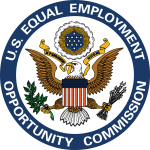 Prior to the NCAA and Big Ten Conference sanctions, board of trustee decisions following the Freeh Report and the release of chilling voicemails left by Jerry Sandusky on a victim’s phone, the looming question of Penn State’s next steps still remain. The image of the university is undoubtedly tarnished after the Jerry Sandusky child sex abuse trial revealed university officials sat idle as children were victimized by the former assistant coach to the prestigious football team.
Prior to the NCAA and Big Ten Conference sanctions, board of trustee decisions following the Freeh Report and the release of chilling voicemails left by Jerry Sandusky on a victim’s phone, the looming question of Penn State’s next steps still remain. The image of the university is undoubtedly tarnished after the Jerry Sandusky child sex abuse trial revealed university officials sat idle as children were victimized by the former assistant coach to the prestigious football team.
The university is still the subject of a number of investigations and the current president, Rodney Erickson says the university is cooperating fully. [Read more] Following the sanctions levied by the NCAA and Big Ten, credit ratings provider, Moody’s Corporation announced that it may cut the university’s current “Aa1” credit rating. A downgrade from Moody’s could make it more expensive for Penn State to borrow money – the school is already $1 billion in debt. [Read more]
Financial woes aside, the university has already begun taking steps to make a dent in replenishing the image it once had; removing the Joe Paterno statue from campus may not be enough.
Erickson announced earlier this month that the university would adopt a new background check procedure. On July 5, all current and future job candidates (including third-party candidates) must undergo a criminal background check prior to working for the university. HR99 as it’s called incorporates a “more comprehensive procedure that also ensures compliance with recently issued new guidance by the Equal Employment Opportunity Commission on background checks.”
Associate vice president of Human Resources, Susan Basso, says that “to provide the safest possible environment for our students, faculty, staff and visitors it is imperative that Penn State implements consistent and thorough background check procedures.”
First Contact HR has always recommended that higher education adhere to EEOC guidelines and adopt a comprehensive background check policy that meets their specific needs. No college or university is the same, yet identity verification, criminal records research, sex offender registry checks, employment and education verification and motor vehicle records review are all recommended services for any potential staff member of an educational institution.
Regarding the effectiveness of background checks, Jerry Sandusky had a criminal background and was even denied a volunteer coaching job in 2010 after Juniata College conducted a background check.
 HR Professional Opinion:
HR Professional Opinion:
Higher education institutions should audit their current practices and conduct an objective risk assessment. Student safety and security should be high priority and never subordinate to other objectives of the institution. Conducting comprehensive background checks that are in compliance with federal, state and local laws are key in protecting the institution’s reputation, hiring and retaining the right talent, while creating a culture that matches the institution’s goals, objectives and vision.
Higher education should evaluate all new hires, volunteers and contractors, considering the following factors against the work to be performed or held, the work performance location, and the degree of risk to the organization:
- Any loyalty or terrorism issue;
- Patterns of conduct (e.g., alcoholism/drug addiction, financial irresponsibility/major liabilities, dishonesty, un-employability for Negligence or misconduct, criminal conduct);
- Felony and misdemeanor offenses;
- Drug manufacturing/trafficking/sale;
- Significant honesty issue (e.g., extortion, armed robbery, embezzlement, perjury);
- Criminal sexual misconduct;
- Serious violent behavior (e.g., rape, aggravated assault, arson, child abuse, manslaughter);
- Illegal use of firearms/explosives; and
- Employment related misconduct involving dishonesty, policy violations, criminal or violent behavior.
Further, prior to taking any adverse action against any subject, First Contact HR recommends consideration of the following:
- The nature, extent and seriousness of the conduct;
- The circumstances surrounding the conduct;
- The frequency of the conduct;
- How recently the conduct occurred;
- The individual’s age and maturity at the time of the conduct;
- The presence or absence of rehabilitation and other pertinent behavior changes;
- The potential for pressure, coercion, exploitation, or duress;
- The likelihood of continuation of the conduct;
- How, and if, the conduct bears upon potential job responsibilities; and
- The individual’s employment history before and after the conduct.







 The rising popularity of background checks has given rise to new trends for vetting new hires and employees by organizations across the U.S.The growth of background checks also permeates other areas such as screening of volunteers, contractors, business partners, board members, housing tenants and even purchasers of guns. Here’s a list of the latest 10 ten trends for 2013 complied by First Contact HR.
The rising popularity of background checks has given rise to new trends for vetting new hires and employees by organizations across the U.S.The growth of background checks also permeates other areas such as screening of volunteers, contractors, business partners, board members, housing tenants and even purchasers of guns. Here’s a list of the latest 10 ten trends for 2013 complied by First Contact HR.










 HR Professional Opinion:
HR Professional Opinion: In May, 2011 a job applicant sued Toojay’s Mgmt. Corp, a private employer, when after the interview process the employer rescinded an offer of employment after finding out the applicant filed for bankruptcy in the past.
In May, 2011 a job applicant sued Toojay’s Mgmt. Corp, a private employer, when after the interview process the employer rescinded an offer of employment after finding out the applicant filed for bankruptcy in the past. It’s no surprise that basically anyone and everyone can conduct a simple background check on whoever they like. With companies like
It’s no surprise that basically anyone and everyone can conduct a simple background check on whoever they like. With companies like  On May 26, 2011, Leon Singletary discussed First Contact HR’s services as well as offered industry insights on
On May 26, 2011, Leon Singletary discussed First Contact HR’s services as well as offered industry insights on